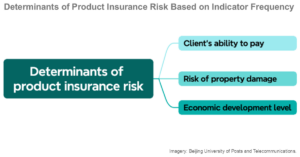 Catastrophic losses from extreme weather events are on the rise across the world, severely testing the capital reserves and claims-paying capability of many insurers. The total damage and economic loss from the Los Angeles fires alone is now estimated to be between $250 billion and $275 billion. Of this, insurers are expected to see at least $30 billion in reported losses and at least another $10 billion for uninsured losses. As the effects of global climate change become more pronounced, the frequency and intensity of extreme weather events are increasing, posing significant challenges to the insurance industry and creating an urgent need for sustainable development. Such catastrophic weather events are increasingly becoming an existential crisis for property owners and insurers.
Catastrophic losses from extreme weather events are on the rise across the world, severely testing the capital reserves and claims-paying capability of many insurers. The total damage and economic loss from the Los Angeles fires alone is now estimated to be between $250 billion and $275 billion. Of this, insurers are expected to see at least $30 billion in reported losses and at least another $10 billion for uninsured losses. As the effects of global climate change become more pronounced, the frequency and intensity of extreme weather events are increasing, posing significant challenges to the insurance industry and creating an urgent need for sustainable development. Such catastrophic weather events are increasingly becoming an existential crisis for property owners and insurers.
Peng, Lianshu, Yida Wang, and Zhensheng Pan. "A Modeling Study of Insurance and Real Estate Risk Assessment in the Context of Global Climate Change". Beijing University of Posts and Telecommunications. 2024. https://drpress.org/...
Posted on 15/01/25
Recent Abstracts
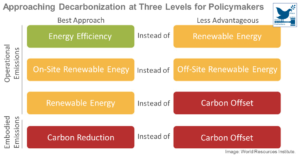
GlobalABC Roadmap for Buildings and Construction: Towards a Zero-Emission, Efficient and Resilient Buildings and Construction Sector
Decarbonizing buildings across their entire life cycle calls for the transformation of the buildings and construction sector. The transformation requires greater collaboration among policymakers at all jurisdictional levels as well as with urban planners, architects, developers, investors, construction companies, and ...
Posted on 29/04/22
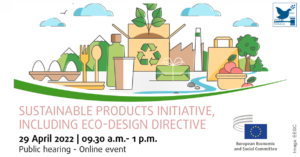
EU Green Deal Product Regulations – What It Means for Design and Construction
The Sustainable Products Initiative (SPI) is a regulatory framework comprising a set of legislative files that aims to boost the circularity of the EU’s single market. The European Commission (EC) proposed the regulation on March 30 2022 intending to make sustainable products the norm in the EU, facilitate circular bu ...
Posted on 27/04/22
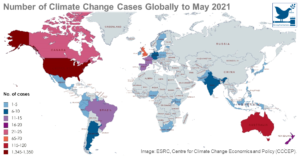
Taking Governments to Court: Climate Litigation and Its Consequences
Climate legal action is increasingly being taken against national governments. Litigation has successfully forced some countries to radically improve on their commitments to tackle the effects and limit the extent of anthropogenic climate change. This paper examines three recent European cases that produced landmark ...
Posted on 23/04/22
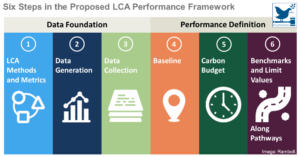
Towards Embodied Carbon Benchmarks for Buildings in Europe – Summary Report
Developers, investors and policymakers must respond with urgency to the threatening climate and ecosystem crisis and set targets aligning with the 2015 Paris Agreement. All participants in the new-build and building renovation value chain must cooperate to establish a standard performance system based on sustainable a ...
Posted on 21/04/22
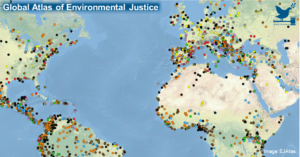
Environmental Conflicts and Defenders: A Global Overview
Environmental defenders are individuals and collectives who take action to protect the environment and to protest unjust and unsustainable use of resources. This paper provides insight on the characteristics of environmental conflicts, the engaged environmental defenders, and successful mobilization strategies. The p ...
Posted on 19/04/22

IPCC WGII Sixth Assessment Report – Technical Summary
There are various global temperature rise and ecosystem impact scenarios, representing uncertainty that affects climate change exposure and vulnerability. This IPCC report summarizes the current understanding of observed climate change impacts on ecosystems, human societies and their cities, settlements, infrastructur ...
Posted on 16/04/22
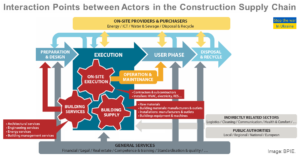
Barriers to Achieving Sustainable Construction Project Procurement in the Private Sector
Sustainable procurement management (SPM) as an approach to integrating sustainability into construction projects that takes into account the social, ecological, and economic consequences of procurement decisions. This study recognizes several challenges that obstruct the effective interaction between stakeholders in a ...
Posted on 14/04/22
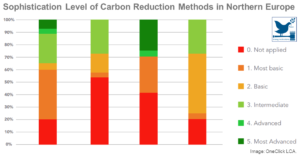
Life Cycle Assessment of Building Materials for a Single-family House in Sweden
This study demonstrates the environmental impact of building materials from production and construction, including transport, replacement and deconstruction, for a single-family house in Sweden. It focused on building materials, materials transport, replacement of essential construction materials, and the environmenta ...
Posted on 12/04/22
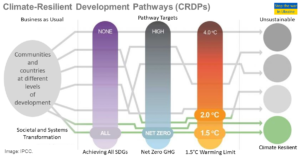
Climate Change 2022: Mitigation of Climate Change – Summary for Policymakers
Under 3.2 °C warming, 49% of insects, 44% of plants and 26% of vertebrates are at great risk of extinction. Best-case scenarios lead to a median range of 2.9–3.2°C in 2100 for current policies and 2.4–2.9°C in 2100 for 2030 pledges. If the targets were promptly and fully implemented, some estimate this could bring te ...
Posted on 10/04/22
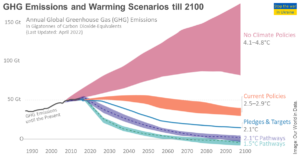
Climate Change 2022 – Mitigation of Climate Change
The world will warm by 3.2°C this century even if all the policies to cut carbon that governments have so far adopted were fully implemented. The high overshoot will increase climate risks for vulnerable regions and societies, causing unprecedented heatwaves, terrifying storms, and widespread water shortages and irrev ...
Posted on 09/04/22
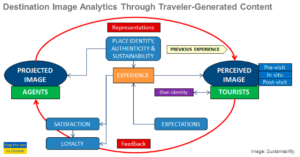
Determining the Sustainability Factors and Performance of a Tourism Destination from the Stakeholders’ Perspective
The development and construction of sustainable tourism destinations ensure that the long-term quality performance of their environment and community life will be sustained. Sustainability is key to managing and maintaining the image and competitiveness of tourism destinations. This study focuses on the future environm ...
Posted on 07/04/22
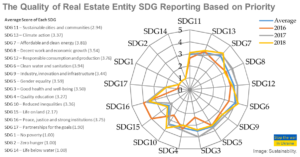
The Involvement of Real Estate Companies in Sustainable Development—An Analysis from the SDGs Reporting Perspective
Most real estate entities lack the strategy, culture and tools to realize their professed sustainability aspirations. They present their intentions mostly qualitatively and report few quantitative key performance indicators (KPIs) that reveal the degree of achieving such priority Sustainable Development Goals (SDGs) a ...
Posted on 31/03/22
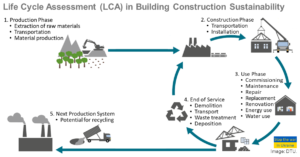
A Methodological Framework for Life Cycle Sustainability Assessment of Construction Projects Incorporating TBL and Decoupling Principles
In construction projects, integration of the three social, economic, and environmental aspects of the triple bottom line (TBL) principle is challenging. Green building rating schemes, such as LEED and BREEAM, fail to fully consider the projects' life cycle sustainability. This study presents a sustainable constructio ...
Posted on 29/03/22
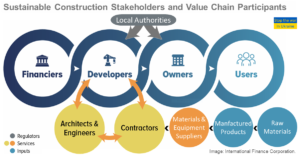
Construction Industry Value Chain
The global construction industry is the world’s largest consumer of raw materials. Construction accounts for 25%–40% of total carbon emissions globally. Companies across all sectors of the construction value chain are embedding sustainability into their operations and products, developing innovative green products, a ...
Posted on 24/03/22
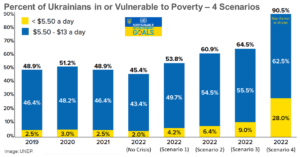
The Development Impact of the War in Ukraine: Initial Projections
The United Nations Development Programme (UNDP) says that the war is demolishing over two decades of economic progress. It reports that at least $100 billion of infrastructure, buildings, roads, bridges, hospitals, schools, and other built assets have already been destroyed by the war. The UNDP says that the impact o ...
Posted on 23/03/22

